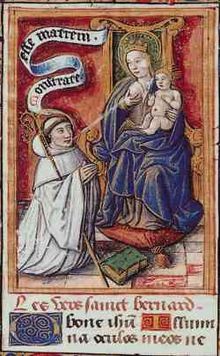 Today, Phillip Campbell (aka Boniface) of Unam Sanctam Catholicam joins us to talk about the history of the Middle Ages, and why most people, traditional Catholics in particular, who have romantic notions of medieval life, would positively hate it. Not to dissuade one from study or admiring the Middle Ages, this conversation about medieval life is aimed at painting an accurate picture of it. Join us, as we dig into the nitty gritty of the middle ages.
Today, Phillip Campbell (aka Boniface) of Unam Sanctam Catholicam joins us to talk about the history of the Middle Ages, and why most people, traditional Catholics in particular, who have romantic notions of medieval life, would positively hate it. Not to dissuade one from study or admiring the Middle Ages, this conversation about medieval life is aimed at painting an accurate picture of it. Join us, as we dig into the nitty gritty of the middle ages.
**Warning**: [insert danger Will Robinson]
There are some points in the podcast where profanities are used demonstratively, as in medievals used the word in a title of this or that and we repeated it. Moreover there will be frank discussion of medieval views about sex and modesty and weird perverted things. There will also be cool medieval music in Latin about bawdy subjects which would could not understand probably. If that offends you, or you thought this would be good for your younger kids, we give fair warning, you will not be happy.
Episode Notes:
Previous interviews with Phillip/Boniface:
Interview 014 on being a mayor in a small town.
Interview 024 on Pope Boniface VIII
Unam Sanctam Catholicam
Holy Hand Grenade of Antioch
Medieval end times views
Medieval Churches used for theater
The Theatre: Three Thousand Years of Drama, Acting and Stagecraft by Sheldon Cheny
Feast of the Ass
Feast of fools
Humility and State in Life
Golliards
Bacche Bene Venies
De Defectibus
Alphonsus Liguori on whether it is licit to have sex in Church
Instructions for Parish Priests by John Myrc (1400s)
Priests working secular occupations (barber/surgeon, lawyer), so common that Lateran II specifically forbid this in 1139
Jacques Fournier records people had sex inside the church (Béatrice de Planissoles)
-Source: Readings in Medieval History
Apostolic Origins of Clerical Celibacy, Cochini
Francis and Joseph Gies
Life in a Medieval Village
Life in a Medieval City
Limbourg Brothers

Mailoica Plate:

abortion and contraception in the middle ages
Origin of the heart shape is from seed-pod of a Roman contraceptive plant:
(NB: I made a mistake in the podcast, I called if fenellinium, it was actually called silphium, got it all mixed up in my head).

Catullus on Silphium:
“as the number of Libyan sands that lie in silphium-bearing Cyrene.” (Poem 7)
Virgo Lactans, St. Bernard:

Troubador Movement
Liber Facetiarum of Poggio Bracciolini
History of Private Life Part 2
Codpieces
Medieval depictions of walking, sword-wielding genitalia (Danger Will Robinson! Crass, weird, odd, and just— enter at your own risk).
Edward IV
Unfortunate Wives of Philip II
Pope Alexander VI annulled the first marriage of Louis XII.
Pierre Darmon’s 1979 book Trial by Impotence.
For more on Henry VIII, see my own talks on the subject.
Politically active clergy:
Wolsey
Richelieu
Mazarin
Simony
Investiture Controversy
Albrecht of Brandenburg
Fuggers



